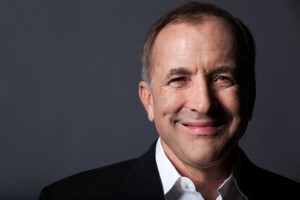CSUN College of Social and Behavioral Sciences to Host Annual Smith Lecture

Author and Professor Michael Shermer
Photo Provided by Jeremy Danger
War, terrorism, racial oppression — is there any hope for humanity? Author and educator Michael Shermer will attempt to answer that question and others at the next Richard W. Smith Lecture in Cultural Studies on Oct. 5 at California State University, Northridge.
The lecture, hosted by CSUN’s College of Social and Behavioral Sciences, will include a discussion of Shermer’s latest book, “The Moral Arc,” which explores why he believes there is indeed hope for humanity. The event will take place at 7 p.m. in the Whitsett Room, Sierra Hall 451, located on the west side of campus at 18111 Nordhoff St. in Northridge.
“As a result of Richard Smith’s generosity, the College of Social and Behavioral Sciences is able to bring to campus speakers of the quality of Michael Shermer,” said Stella Theodoulou, dean of the college.” [Shermer] provokes discussion around topics such as morality and justice that are far more than philosophical concepts, but are applicable to our everyday real life.”
Shermer has taught courses such as psychology and the history of science for more than 30 years at multiple universities. He is currently an adjunct professor at Chapman University, host of the Skeptics Distinguished Lecture Series at California Institute of Technology and teaches a transdisciplinary course for Ph.D. students at Claremont Graduate University. He is known for creating Skeptic magazine, and he serves as executive director of the Skeptics Society. Skeptic magazine seeks to give a sound and scientific viewpoint about revolutionary ideas and extraordinary claims. Shermer has appeared on TV shows such as “The Oprah Winfrey Show,” The Colbert Report and “20/20.” He was a co-host and producer for the series “Exploring the Unknown.”
The Moral Arc, which was published in 2015, reveals how science and rational thinking helped eliminate myths that societies once embraced. For example, a few centuries ago, humans were sacrificed to help calm weather gods. Today, meteorology explains different weather patterns, such as hurricanes and tornados.
Fifty years ago, students of different ethnic groups did not have access to the same level of education and were not allowed to learn in the same classrooms as whites. Today, there are classrooms full of diversity.
Shermer admits that society has a long way to go, but reflecting on the progress that has been made, he thinks it is heading in the right direction.
There will be a book signing and a small reception following the lecture.
For more information, call 818-677-7169 or email csbsevents@csun.edu.

 experience
experience